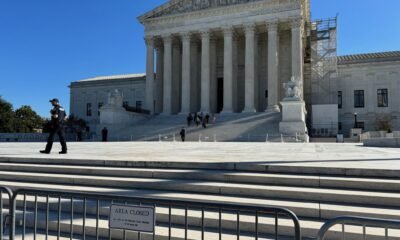Business
Corp Comm Greenlights New Formula-Based Ratemaking for Utilities

In a contentious meeting, the Arizona Corporation Commission voted 3-2 on Tuesday to approve formula ratemaking. The decision allows utilities to skip the conventional rate case process for implementing rate increases.
Three Republican commissioners endorsed the policy, which enables utilities to apply for formula rate plans. In contrast, Democratic Commissioner Anna Tovar and Republican Commissioner Lea Marquez Peterson opposed the measure. The new framework requires utilities to submit annual updates based on historical test year data to justify rate increases for customers without undergoing a full hearing process.
Amendments added to the policy include stipulations for utilities to present a complete rate case every five years under a formula plan, unless an alternate schedule is established. The revisions also included modified language to address concerns raised during the discussion.
Despite opposition from advocacy groups, including the Residential Utility Consumer Office and the Attorney General’s Office, the initiative has garnered support from business organizations like the Arizona Chamber of Commerce and Industry. During the hearing, Republican Chairman Jim O’Connor defended the policy against critics. He asserted that claims against formula-based rates were misconceptions.
“The notion that formula-based rates are bad for customers of utilities is blatantly false,” O’Connor stated, expressing frustration over the lengthy opposition testimonies.
Tensions escalated when O’Connor addressed the skeptics by questioning the basis of their doubts: “Everybody at that microphone that is downing this idea… Raise questions. Use hyperbole. Keep it going. This is now political.”
Surprise marked the announcement of the policy in a letter from O’Connor and Commissioner Nick Myers on November 20, which caught several stakeholders off guard. Advocacy groups urged the commission to postpone the vote, arguing that more time was needed for public commentary.
The commission had initiated a docket in 2023 to explore ratemaking changes, focusing on future test years. Following a workshop held in March, the commission voted to conduct additional workshops, although a planned third workshop remains outstanding.
Marquez Peterson raised concerns about the expedited process, indicating she expected further discussion before a final decision. “This decision is being made hastily, without thorough vetting,” she stated, expressing skepticism about the policy’s oversight.
Commissioner Myers countered the notion that the new policy would drastically alter existing ratemaking practices. “The policy statement is not requiring anything from our utilities; it simply offers an option,” he clarified, emphasizing its potential benefits for customers.
O’Connor and Myers criticized those opposing the policy for not providing timely feedback, labeling their silence as indicative of either a lack of diligence or prioritization on their part. Myers remarked, “I have to assume the lack of meaningful feedback… is due to one of three reasons.”
Tovar further encouraged stakeholders to challenge the policy statement, suggesting it may not align with statutory definitions. “I think the biggest issue here is that it is not a proper policy statement,” she stressed, urging intervention from concerned groups.
Stakeholders have the option to either seek a reconsideration from the commission or to file a lawsuit in Maricopa County Superior Court. Currently, it remains unclear whether any group will pursue these actions.
![Maricopa City Council member AnnaMarie Knorr sits at the dais during a Jan. 21, 2025, meeting at Maricopa City Hall. On top: Sketches of the proposed Maricopa Towne Center, which advanced Tuesday. [Monica D. Spencer]](https://arizonanews.org/wp-content/uploads/2025/06/City-Council-Greenlights-Ambitious-184-Acre-Vestar-Shopping-Center-Rezoning-400x240.jpg)
![Maricopa City Council member AnnaMarie Knorr sits at the dais during a Jan. 21, 2025, meeting at Maricopa City Hall. On top: Sketches of the proposed Maricopa Towne Center, which advanced Tuesday. [Monica D. Spencer]](https://arizonanews.org/wp-content/uploads/2025/06/City-Council-Greenlights-Ambitious-184-Acre-Vestar-Shopping-Center-Rezoning-80x80.jpg)
















